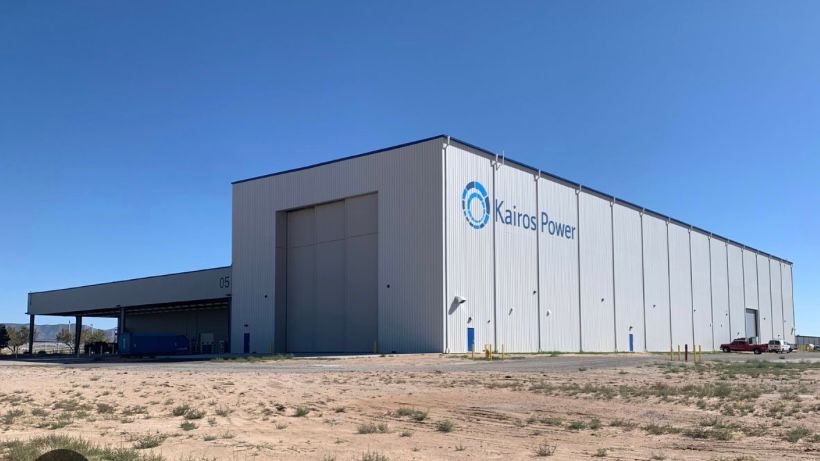Google said Monday it signed a deal to create advanced nuclear power projects for its artificial intelligence operations. California-based Kairos Power will develop, construct and operate the plants to provide clean electricity to the tech giant’s data centers.
“The grid needs new electricity sources to support AI technologies that are powering major scientific advances, improving services for businesses and customers and driving national competitive and economic growth,” Google said in a blog post announcing the deal. “This agreement helps accelerate a new technology to meet energy needs cleanly and reliably and unlock the full potential of AI for everyone.”
Google said nuclear is an attractive power source because it produces no carbon emissions and generates electricity around the clock.
The company expects the first small modular reactors to generate power by 2030, with additional reactors coming online through 2035.
“Our partnership with Google will enable Kairos Power to quickly advance down the learning curve as we drive toward cost and schedule certainty for our commercial product,” Kairos Power CEO and Co-founder Mike Laufer said in a statement. “By coming alongside in the development phase, Google is more than just a customer. They are a partner who deeply understands our innovative approach and the potential it can deliver.”
Google said the deal will provide as much as 500 megawatts of clean electricity. One megawatt of electricity can power about 500 homes per year.
Since 2010, Google has signed more than 115 clean energy agreements for more than 14 gigawatts of clean energy generation, much of it for solar and wind. In 2023, its first corporate agreement to develop an enhanced geothermal power project began operating in Nevada to power its data centers.
The deal comes less than a month after Microsoft said it had signed a 20-year agreement to purchase power from a Three Mile Island nuclear power facility that’s scheduled to restart in 2028. The Seattle-based technology giant plans to use the electricity from the Londonderry, Penn., facility to power its data centers.
Nuclear power is a cornerstone of the Biden administration’s climate policy, which has set a goal of 100% clean electricity generation by 2035. U.S. Energy Secretary Jennifer M. Granholm has said nuclear power is the country’s single largest source of carbon-free electricity.
Electricity demand is expected to increase 1.4% annually through 2032, according to Morningstar. Much of the demand will come from economic growth and the electrification of vehicles and buildings. Morningstar expects carbon-free energy produced from renewables such as wind and solar, as well as nuclear and hydro power, to make up 66% of the U.S. electricity supply by 2032.



